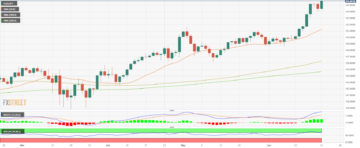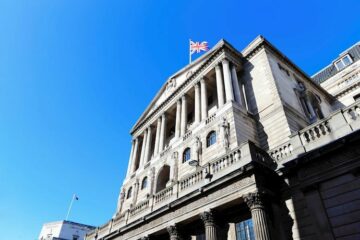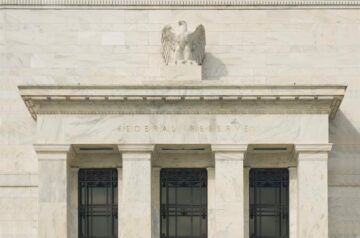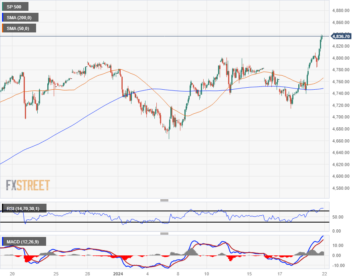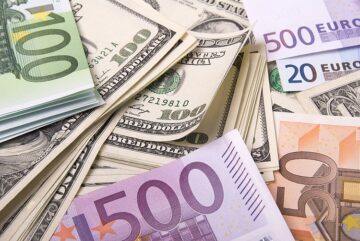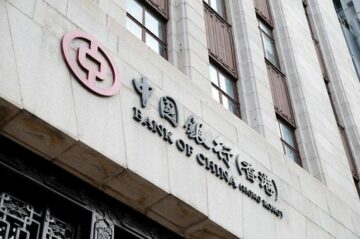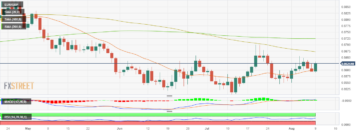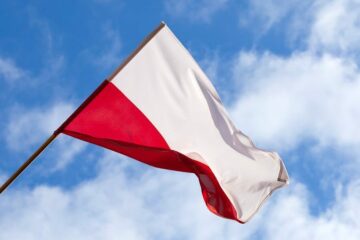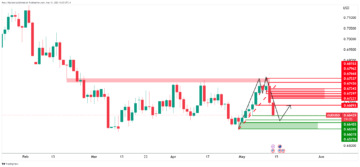
European Central Bank (ECB) policymaker and Bundesbank Chief Joachim Nagel said on Friday that “the probability of a rate cut before the summer break is increasing.”
Additional comments
Do not see any automatism in rate cuts.
A June rate cut has a higher probability than one in April.
Market reaction
EUR/USD keeps its rebound intact above 1.0800 following Nagel’s comments. The pair is currently trading at 1.0818, still losing 0.38% so far.
ECB FAQs
The European Central Bank (ECB) in Frankfurt, Germany, is the reserve bank for the Eurozone. The ECB sets interest rates and manages monetary policy for the region. The ECB primary mandate is to maintain price stability, which means keeping inflation at around 2%. Its primary tool for achieving this is by raising or lowering interest rates. Relatively high interest rates will usually result in a stronger Euro and vice versa. The ECB Governing Council makes monetary policy decisions at meetings held eight times a year. Decisions are made by heads of the Eurozone national banks and six permanent members, including the President of the ECB, Christine Lagarde.
In extreme situations, the European Central Bank can enact a policy tool called Quantitative Easing. QE is the process by which the ECB prints Euros and uses them to buy assets – usually government or corporate bonds – from banks and other financial institutions. QE usually results in a weaker Euro. QE is a last resort when simply lowering interest rates is unlikely to achieve the objective of price stability. The ECB used it during the Great Financial Crisis in 2009-11, in 2015 when inflation remained stubbornly low, as well as during the covid pandemic.
Quantitative tightening (QT) is the reverse of QE. It is undertaken after QE when an economic recovery is underway and inflation starts rising. Whilst in QE the European Central Bank (ECB) purchases government and corporate bonds from financial institutions to provide them with liquidity, in QT the ECB stops buying more bonds, and stops reinvesting the principal maturing on the bonds it already holds. It is usually positive (or bullish) for the Euro.
- SEO Powered Content & PR Distribution. Get Amplified Today.
- PlatoData.Network Vertical Generative Ai. Empower Yourself. Access Here.
- PlatoAiStream. Web3 Intelligence. Knowledge Amplified. Access Here.
- PlatoESG. Carbon, CleanTech, Energy, Environment, Solar, Waste Management. Access Here.
- PlatoHealth. Biotech and Clinical Trials Intelligence. Access Here.
- Source: https://www.fxstreet.com/news/ecbs-nagel-probability-of-a-rate-cut-before-the-summer-break-is-increasing-202403220909
- :has
- :is
- :not
- 1
- 10
- 17
- 2%
- 2015
- 5
- 7
- 8
- a
- above
- Achieve
- achieving
- After
- already
- an
- and
- any
- April
- ARE
- around
- AS
- Assets
- At
- Bank
- Banks
- before
- Bonds
- Break
- Bullish
- buy
- Buying
- by
- called
- CAN
- central
- Central Bank
- checked
- chief
- Christine
- CHRISTINE LAGARDE
- comments
- Corporate
- Council
- Covid
- crisis
- Currently
- Cut
- cuts
- decisions
- during
- easing
- ECB
- Economic
- economic recovery
- eight
- Ether (ETH)
- Euro
- European
- European Central Bank
- Euros
- Eurozone
- extreme
- FAQ
- far
- financial
- financial crisis
- Financial institutions
- following
- For
- forex
- frankfurt
- Friday
- from
- Germany
- governing
- Government
- great
- heads
- Held
- High
- higher
- holds
- HTTPS
- in
- Including
- increasing
- inflation
- institutions
- interest
- Interest Rates
- IT
- ITS
- jpg
- june
- keeping
- Lagarde
- Last
- Liquidity
- losing
- Low
- lowering
- made
- maintain
- MAKES
- manages
- mandate
- means
- meetings
- Members
- Monetary
- Monetary Policy
- more
- National
- National Banks
- objective
- of
- on
- ONE
- or
- Other
- pair
- pandemic
- permanent
- plato
- Plato Data Intelligence
- PlatoData
- policy
- positive
- president
- price
- primary
- Principal
- prints
- probability
- process
- provide
- purchases
- QE
- QT
- quantitative
- Quantitative Easing
- raising
- Rate
- Rates
- rebound
- recovery
- region
- relatively
- remained
- Reserve
- reserve bank
- Resort
- result
- Results
- reverse
- rising
- Said
- see
- Sets
- simply
- situations
- SIX
- So
- so Far
- Stability
- starts
- Still
- Stops
- stronger
- summer
- than
- that
- The
- Them
- this
- tightening
- times
- to
- tool
- Trading
- Underway
- unlikely
- used
- uses
- usually
- v1
- versa
- vice
- weaker
- WELL
- when
- which
- Whilst
- will
- with
- year
- zephyrnet

